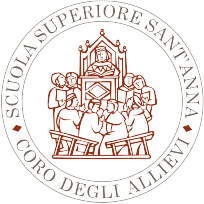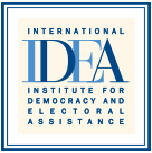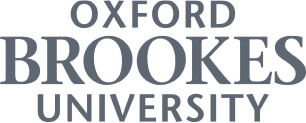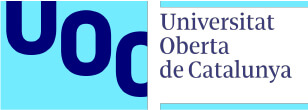

Master's Degree in
Electoral
policy and administration
WITH SCHOOL OF ADVANCED STUDIES – PISA
UN Photo/Harandane Dicko
The Master in Electoral Policy and Administration (MEPA) is an advanced online programme designed to equip current and aspiring election professionals with comprehensive knowledge and skills in electoral processes and administration. Delivered by UNITAR in collaboration with Scuola Superiore Sant’Anna and International IDEA, MEPA leverages the expertise of field practitioners and world-leading academics to address the global demand for qualified electoral professionals.
The curriculum covers all electoral phases and frameworks, with modules on managing elections in emergencies, elections in fragile contexts, leadership in electoral administration, gender and elections, and electoral logistics.
The programme is offered in English, French, Portuguese, and Arabic.
MEPA fosters the development of professionals who adhere to common norms and standards in electoral policy and administration, providing a dynamic platform for participants to deepen their knowledge and improve the operational effectiveness of policymakers and decision-makers in elections. Interested candidates are encouraged to apply promptly due to limited places.
The Master in Electoral Policy and Administration (MEPA) is an advanced online programme designed to equip current and aspiring election professionals with comprehensive knowledge and skills in electoral processes and administration. Delivered by UNITAR in collaboration with Scuola Superiore Sant’Anna and International IDEA, MEPA leverages the expertise of field practitioners and world-leading academics to address the global demand for qualified electoral professionals.
The curriculum covers all electoral phases and frameworks, with modules on managing elections in emergencies, elections in fragile contexts, leadership in electoral administration, gender and elections, and electoral logistics.
The programme is offered in English, French, Portuguese, and Arabic.
MEPA fosters the development of professionals who adhere to common norms and standards in electoral policy and administration, providing a dynamic platform for participants to deepen their knowledge and improve the operational effectiveness of policymakers and decision-makers in elections. Interested candidates are encouraged to apply promptly due to limited places.
The Master in Electoral Policy and Administration is awarded upon the completion of 62 ECTS. This is a fully online programme with interactive eLearning.
Modules:
9 months
Thesis:
3 months
Internship:
Minimum of 300 hours
Residential Component:
Up to two weeks at the Sant’Anna School of Advanced Studies in Pisa (Autumn/Spring). Requires a minimum of 10 participants and is conducted in English.
Do you have any questions about this programme?
Applications are open throughout the year and students are accepted on a rolling basis. However, deadlines exist to be considered for a specific semester.
Apply Before:
Semester Start:
Apply Before:
Semester Start:
Curriculum
The Master in Electoral Policy and Administration is awarded upon the completion of 62 ECTS. The MEPA syllabus comprises 12 compulsory modules and 12 optional modules. 2 to 4 ECTS credits will be awarded for each module upon completion of the said module (depending on the complexity of the module). MEPA participants should complete all the assigned compulsory modules and choose a series of optional courses based on their preferences.
12
Compulsory Modules:
·
Elections and Voting as Instruments of Governance – 2
ECTS credits
·
Electoral Legal and Regulatory Frameworks – 3 ECTS
credits
·
Electoral Management Bodies (EMBs) – 3 ECTS credits
·
Electoral Systems and Managing Representation – 3 ECTS
credits
·
Political Parties, Campaigns, and Political Finance –
3 ECTS credits
·
Electoral Planning and Budgeting – 3 ECTS credits
·
Voter Registration and Identification Systems – 3 ECTS
credits
·
Electoral Operations – 3 ECTS credits
·
Marginalized Electorates and Special Voting Programs –
2 ECTS credits
·
Electoral Integrity and Malpractice – 4 ECTS credits
·
Electoral Justice Systems – 3 ECTS credits
·
Policy Advice and Electoral Reform – 3 ECTS credits
12
Optional Modules:
·
Understanding and Managing Boundary Delimitation – 3
ECTS credits
·
Electoral Logistics – 4 ECTS credits
·
Gender and Elections – 2 ECTS credits
·
Managing Elections in Public Emergency Situations – 3
ECTS credits
·
Election Integrity in the Digital Age – 3 ECTS credits
·
Civic and Voter Education – 2 ECTS credits
·
Media and Elections – 2 ECTS credits
·
Managing Electoral Security, Electoral Violence, and
Preventing Election-related conflicts – 2 ECTS credits
·
Elections in Fragile / Post Conflict contexts – 3 ECTS
credits
·
Electoral Observation, Evaluation, and Validation – 3
ECTS credits
·
Direct Democracy – 2 ECTS credits
·
Leadership in Electoral Administration – 2 ECTS
credits (under construction)
The credits
corresponding to all the selected optional modules should reach a maximum of 12
ECTS credits. ECTS credits are issued upon completing an individual module
after a positive evaluation of the intermediate and final learning assessment
tests and upon compliance with the obligations underlined in the Master Program
Procedural Guidelines for Students.
A maximum of 67
academic credits calculated according to the European Credit Transfer and
Accumulation System (ECTS credits) will be awarded upon successful completion
of the Master Program, subordinate to the evaluation of results and fulfilment
and compliance of the Rules and Regulations of the Master in Electoral Policy
and Administration.). More specifically:
·
47 ETCS credits: will be
awarded upon successful completion of the online compulsory and optional
modules (article 12) and fulfilment and compliance with the Master Program
Procedural Guidelines for Students.
·
15 ECTS credits: will be
awarded upon positive evaluation and public defence of the Master Thesis (min
15.000 max 20.000 words). Candidates who choose to undertake an internship and
successfully complete it will present a shorter Master Thesis (min 7.000 max
10.000 words);
5 extra ECTS credits:
may be obtained by attending the optional residential
phase or successfully completing additional optional modules.
Frequently Asked Questions
The Master in Electoral Policy & Administration (MEPA) programme is ideal for individuals currently working or aspiring to work as election administrators, members of Election Management Bodies, electoral observers, or any professionals involved in electoral policy and administration.
Graduates of the MA in Electoral Policy & Administration will achieve:
- Comprehensive Understanding of Electoral Processes: Demonstrate advanced knowledge of electoral systems, legal frameworks, and operational procedures across various electoral phases and contexts.
- Analysis and Strategic Planning: Acquire analytical skills to assess electoral challenges, formulate strategic plans, and implement effective electoral management strategies.
- Election Management Expertise: Master techniques and best practices in election administration, including voter registration, logistics, budgeting, and security, to ensure efficient electoral operations.
- Development of Electoral Policies and Practices: Access and apply knowledge to develop and refine electoral policies, practices, and procedures that uphold democratic principles and integrity.
- Leadership in Electoral Governance: Lead and manage electoral processes with proficiency, promoting transparency, inclusivity, and public trust in electoral institutions.
- Effective Communication and Diplomacy: Utilize advanced communication and diplomatic skills to engage stakeholders, resolve electoral disputes, and foster consensus for fair and credible elections.
The Master in Electoral Policy and Administration (MEPA) programme spans a comprehensive curriculum delivered through an interactive eLearning platform. Participants engage in various modules covering electoral systems, legal frameworks, operational procedures, and specialized topics such as gender in elections and electoral integrity.
- Online Component: 9 months, totalling 470 hours (excluding individual study hours).
- Optional Internship: Minimum of 300 hours.
- Drafting and Public Defense of the Thesis: 3 months.
- Optional Residential Component: Up to two weeks at the Sant’Anna School of Advanced Studies’ premises in Pisa during autumn or spring. This component requires a minimum of 10 participants and is conducted in English.
Our programme embodies a unique student-centred, multidisciplinary philosophy where the workplace serves as the primary learning arena. Leveraging the internet as a platform, our virtual learning environment unites students, practitioners, and scholars, fostering collaborative and experiential learning.
Key features of the Master and related academic programmes include:
- Full Online Delivery: Our programme is delivered entirely online, providing maximum flexibility to accommodate the schedules of full-time working professionals.
- Student-Centred Approach: At the heart of our programme is a commitment to placing the learner and their learning journey at the forefront.
- Cutting-Edge Insights: We offer pioneering perspectives on current theories and practices in conflict, peace, and security.
- Lifelong Learning Focus: Emphasising continual professional development, our approach integrates real-world workplace experiences into the learning process.
- Multicultural Pedagogy: We value and respect diverse perspectives, paradigms, and intellectual traditions, enriching the educational experience.
- Multidisciplinary Approach: Our curriculum draws from multiple fields of study, providing a comprehensive understanding of complex global challenges.
The tuition fee for the MA in Electoral Policy and Administration is 10,000 EUR.
It is payable in three instalments of, respectively: 3.500,00 euros, 3.500,00 euros and 3.000,00 euros. The first instalment shall be paid at enrolment. The tuition fees cover the following components: academic and tutorial costs, didactic materials, access to university services such as the eLibrary, and administrative expenses. The programme does not cover travel expenses, visas, and accommodation in Pisa for the optional residential phase and any other related costs.
The fee for each MEPA module is determined by the number of credits assigned to it, which ranges from 2 to 4 depending on the complexity of the module. The fees are 700.00 euros for 2-credit modules, 850.00 euros for 3-credit modules, and 950.00 euros for 4-credit modules. Students who enrol in multiple modules receive a 10% discount on the fees for the second and third modules and a 15% discount on the fees for the fourth, fifth, and sixth modules. The order of the modules for calculating the reduction will consider the least expensive modules first, and the most expensive modules last to benefit the student. Special fee reductions may be available if an institute or organization enrols a certain number of employees/participants simultaneously in the Master Programme or individual modules.
Fees Reduction and Discounts
To promote diversity within the programme, the Sant’Anna School of Advanced Studies and its partners may offer partial fee reductions based on merit, distinctive competencies, and academic excellence to talented students who require financial aid. In each selection round, the Sant’Anna School of Advanced Studies and its partners may offer fee reductions of up to 30% to Master candidates from Least Developed Countries (LDCs). Female candidates will have precedence in the case of ex aequo. Admitted candidates who require financial reductions may contact the programme director within one week of receiving their acceptance email. Fee reductions are subject to the availability of funds.
Pursuant to art. 9, paragraph 2 of Legislative Decree No. 68/2012 the Institution grants total exemption regarding payment of the enrolment fee in the case of students with disabilities, acknowledged to be equal to or greater than sixty-six percent, in accordance with art. 3, paragraph 1 of Law No. 104/1992, and applies a 1.5% reduction for every percentage point of disability in the case of students who have been acknowledged a disability of less than sixty-six percent. A student who asks for said exemption or reduction must attach an appropriate certificate to the online application.
Please go to the Scuola Superiore Sant’Anna webpage to read more about the Course Fees.
For a detailed guide on how to apply, please refer to the tutorial video: How to Apply Online.
Steps to Apply for the Full Master Programme:
- Visit the website: https://www.santannapisa.it/en/istanza-master/master-electoral-policy-administration
- Upload the completed application form during the online application procedure.
- Provide the requested information and upload the mandatory documents:
- Copy of passport or identification card
- Copies of all mentioned degrees (e.g., BA, MA, PhD)
- Official transcripts of the bachelor’s degree
- Copy of the last payslip (if applying for a scholarship and currently employed)
Steps to Apply for Individual Modules:
- Visit the website: https://www.santannapisa.it/en/istanza-master/master-electoral-policy-administration
- Download the “Individual Modules Application” file and fill it out electronically.
Email the completed file to: mepa@santannapisa.it
- Next Application Deadline: 22 March 2025. Programme starts on 12 April 2025.
- Application Periods: Applications are accepted twice a year, depending on the programme start date. Please check the specific registration period and course commencement dates on the UNITAR or Scuola Superiore Sant’Anna website. Applications received after the final deadline are evaluated case by case on a rolling basis.
The Jeff and Carolyn Fischer Scholarship is also an annual scholarship award granted to one student per intake, which covers part of the tuition costs of the master’s programme. The award is $5,000 and is given to a student who has been admitted to the MEPA programme and is professionally engaged or intends to be engaged in some aspect of electoral conflict prevention and electoral security. Applicants must submit a cover letter in English to Professor Jeff Fischer, explaining their engagement in electoral security, career path, and future professional plans. The scholarship applications are reviewed and awarded by Professor Fischer based on the applicant’s background, professional intentions concerning electoral security, and future plans.
At the end of the master’s programme, the Institution issues a first-level University Master’s Diploma pursuant to art. 3 of Ministerial Decree No. 270/2004, as subsequently amended, to students who: attended the entire training syllabus regularly; passed the final exams for all the compulsory and selected optional modules, in accordance with the requirements envisaged in the Disciplinary Regulations; successfully discussed the Master thesis; and are up to date with the payment of the enrolment fees.
Students admitted to individual modules, who have regularly settled the tuition costs and have passed all the required examinations, will receive a Certificate of Completion and the respective ECTS credits.
Testimonial
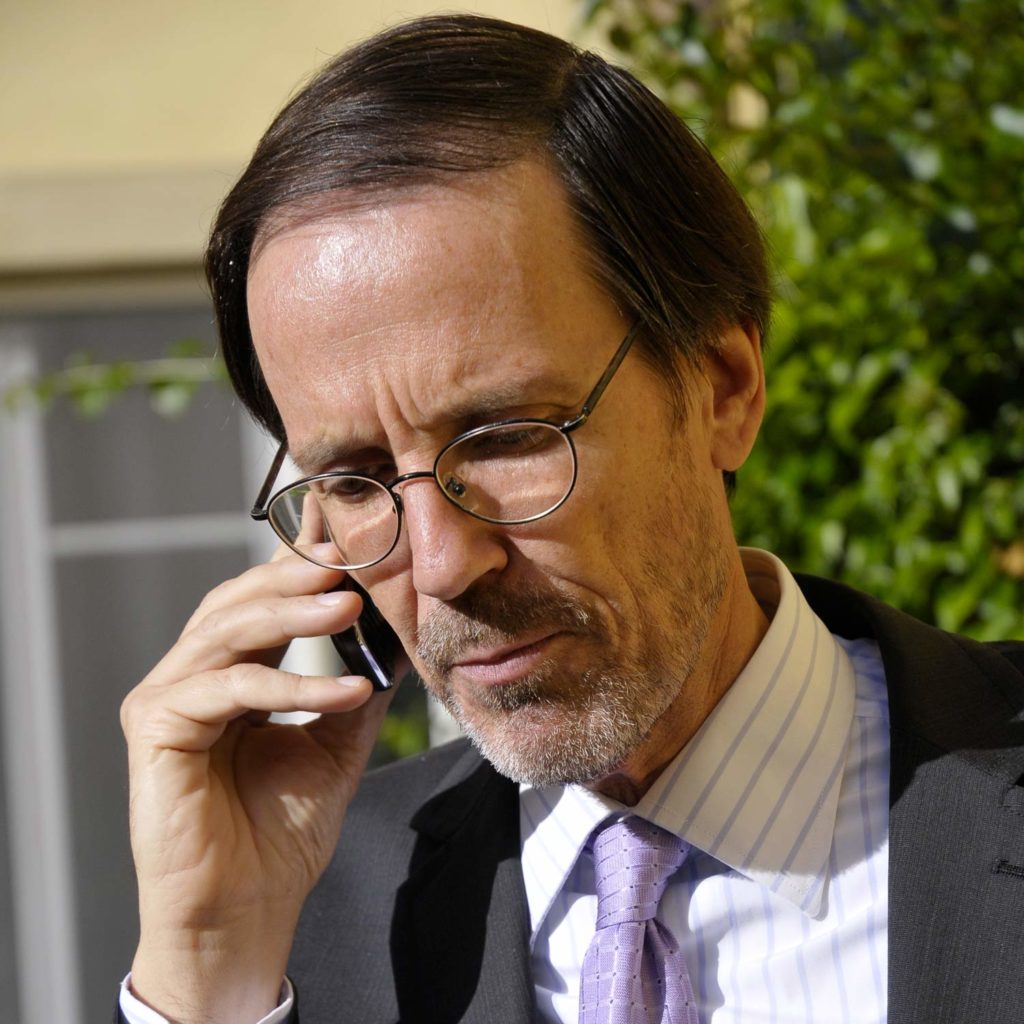
Professor Andrea de Guttry,
MEPA Programme Director, Scuola Superiore
Sant’Anna



